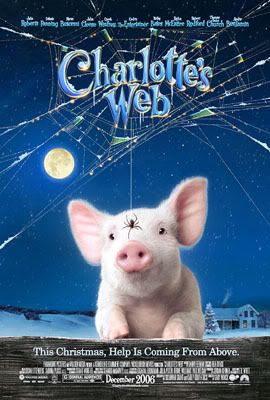I keep a Google Search of "Michigan School Funding", and read a half dozen articles daily. Some of Michigan's schools are better off at the moment and some are in critical straights, but all are heading in the direction of financial ruin.
When I talk to people about public school funding, people tend to focus on a few well-publicized issues --teacher's benefits, waste in the system, shrinking class sizes-- without seeing the whole picture. I can't blame them. After all that studying, I still have a hard time putting the causes of our current crisis into perspective. So I was excited to read
Bleak picture painted of future school finances
— The former state deputy treasurer said Michigan’s budget problems are caused by a weak economy and a structural deficit.
By James Rufus Koren
Daily Telegram Staff Writer
ADRIAN — Tom Clay of the Citizens Research Council of Michigan painted a grim picture of the state budget and school funding Thursday night in a presentation to more than 150 people at the Lenawee Intermediate School District Vo-Tech center.
In his presentation, the former state deputy treasurer said Michigan’s budget problems — the worst since World War II, he said — are caused both by a weak economy and by a structural deficit.
A structural deficit occurs, he said, when the price to maintain current programs goes up faster than the state’s revenue can grow. He said it will take structural changes, not just a stronger economy, to fix the state’s budget and school funding.
“Superintendents and school boards and financial people in public schools and in local government are going to be confronted with situations year after year where there just isn’t enough money to continue to operate programs,” Clay said. “It’s going to take structural changes — some kind of structural changes in the spending and revenue sides of the budget — to heal this budget.”
State budget
On the spending side, steadily increasing costs for corrections and community health have been eating up money in the state’s general fund.In 2001, corrections and community health spending took up about 44 percent of the state’s general fund budget. In 2007, more than half of the general fund will pay for corrections and community health, which includes Medicaid.
“We can expect the general funds on Medicaid to grow three or four times as fast as revenue, and that’s a function of the cost of medical care going up much more rapidly,” Clay said. Corrections costs, he added, are expected grow about twice as fast as the state’s revenue.
On the revenue side of the state budget, Clay said Michigan’s tax system reflects the state’s economy from 1950s, ’60s and ’70s, taxing most goods while services go untaxed.“As far as the eye can see ... the revenue causes are going to continue unless we somehow change our revenue structure to make it more like the 21st century than the middle of the 20th century,” Clay said. “We have major revenue sources that just are simply not responsive to the economy of today.”
In the middle of the 20th century, Clay said, Michigan’s work force was divided evenly between providing goods and providing services. Today, the overwhelming majority — 80 percent — of the state’s jobs are service-oriented, he said.A combination of tax cuts over the past few years and the fact that few services are taxed in Michigan mean that the state collects a smaller percentage of taxes than it did in 1999, down to 6.7 percent from a peak of about 8 percent.
“That doesn’t sound like much, but you multiply 1.3 percentage points times $330 billion, that’s the bottom line. If the state had continued to collect a constant proportion of personal income, it would be collecting $4-plus billion more than it does,” Clay said.
Among the tax cuts figured into those figures, Clay said, is the recent cut of the Single Business Tax, which takes effect in 15 months and will mean $1.9 billion less in state revenue.
School funding
Clay said the state’s structural deficit both affects and exists within the state’s School Aid Fund, which makes up $12.8 billion of the state’s $41.2 billion budget.
This year, the state increased the school foundation grant — the amount of money schools get for each student and the lion’s share of every school’s operating budget — by $210. Meanwhile, the cost of running schools this year could go up, on average, by more than $400.
Schools will have to increase their contribution to retirement funds from 16.34 percent of payroll to 17.74 percent of payroll. That increase will cost about $80 per student, Clay said.
Tack on as much as $240 per student for contract-mandated “pay and step” raises for employees, at least $50 per student for increases in health insurance costs and another $50 for increases in fuel, utility and supply costs, and districts have more than $200 in additional expenses not covered by the increase in foundation grant, Clay said.
Looking at projections for the 2008 fiscal year, Clay said school costs will continue to increase faster than school revenues.
“Health insurance has been going up in double digits for the last several years. The statewide average now, health insurance is $1,200 per pupil,” Clay said, adding that health insurance costs are likely to continue growing by 4 percent or 5 percent per year — about $50 or $60 more per student.
State remedies
A structural deficit, Clay said, requires structural changes in terms of spending and revenues. He noted, though, that the largest changes would have to come at the state level.
One option to fix the state’s budget and school funding issues would be to raise taxes. Clay said if the state does not raise taxes, it will have to cut about 3 percent of spending from its budget every year for the foreseeable future.
Michigan is a low-to-average tax state, Clay said, and, “people are beginning to get concerned about whether we’re beginning to give up some important quality of life in the state in exchange for being a low-tax state.”
Clay was careful to say he is not advocating tax increases, but that the potential for more revenue from taxing services is "enormous.”
“Services alone that we don’t tax would yield about $8.8 billion in tax income,” he said, but added it might be a bad idea to tax some such as business-to-business services or health care services.
The state could also look further into pooling for health insurance or changing contribution rates for retirement funds, he said.State Rep. Dudley Spade, D-Tipton, who was at Thursday’s presentation, said he is against taxing services because such a change would be taking a “piecemeal” approach to a larger problem.
“What he’s really talking about is we have a structural deficit, and we need significant change to turn this around,” Spade said. “Going at it on a piecemeal basis has not worked in the past and it's not gonna work now.”
Another possible change to the education funding system is Proposition 5, which will be on November’s ballot. The proposition would amend the State School Aid Act of 1979 by providing funding guarantees for universities, community colleges and K-12 education and cap the amount of money schools must pay for employee retirement costs.
Under the proposition, school spending would increase every year by the rate of inflation, regardless of how well the economy is doing, Clay said, and schools would be protected from big increases in health care costs.
“For local districts,” Clay said, “it would represent a major windfall.”
The proposal would, however, mean budget cuts in other programs funded through the state’s general fund.
Local remedies
While Clay said local leaders and school districts have little control over the structural deficit in education funding, he said schools can try to cut their spending.
Part of that, he said, involves renegotiating contracts for salaries and benefits, and paying employees what the district can afford, not necessarily what employees need or deserve.
Another option is to look at cutting programs. He said for most school districts the goal has been to “maintain the classroom, a teacher and 25 or 30 smiling faces, and cutting in other areas — art, music, athletics.”
“There’s not a heck of a lot that can be done in the program area unless the whole model of how education is delivered is changed from what it’s been for decades — or centuries, I guess — and that’s a real-live person teaching real-live kids,” Clay said.
After Clay’s presentation, he led a short discussion with a panel of Lenawee County superintendents and board members.
Adrian Public Schools Superintendent Del Cochran said schools can save money by working with each other. He noted that Adrian runs the food service program for the Lenawee Intermediate School District and does bus maintenance for Hudson Area Schools and Madison School District.
“The more we can work cooperatively as school districts in this county, the more we can better save dollars and cents,” said Mark Wolfe, a member of the Tecumseh Board of Education and one of the panelists.
Panelists agreed schools will likely need to continue to find ways to save money.
After the presentation, Madison Superintendent Jim Hartley asked Clay, “I mean, how bad does it have to get?”
Clay responded, “It takes a train wreck.”

















